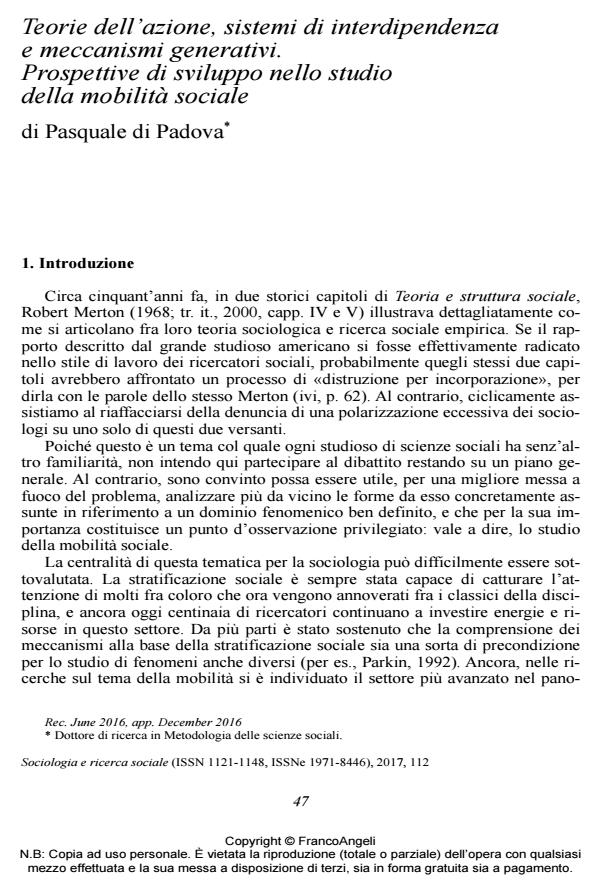Teorie dell’azione, sistemi di interdipendenza e meccanismi generativi. Prospettive di sviluppo nello studio della mobilità sociale
Titolo Rivista SOCIOLOGIA E RICERCA SOCIALE
Autori/Curatori Pasquale di Padova
Anno di pubblicazione 2017 Fascicolo 2017/112
Lingua Italiano Numero pagine 22 P. 47-68 Dimensione file 241 KB
DOI 10.3280/SR2017-112003
Il DOI è il codice a barre della proprietà intellettuale: per saperne di più
clicca qui
Qui sotto puoi vedere in anteprima la prima pagina di questo articolo.
Se questo articolo ti interessa, lo puoi acquistare (e scaricare in formato pdf) seguendo le facili indicazioni per acquistare il download credit. Acquista Download Credits per scaricare questo Articolo in formato PDF

FrancoAngeli è membro della Publishers International Linking Association, Inc (PILA), associazione indipendente e non profit per facilitare (attraverso i servizi tecnologici implementati da CrossRef.org) l’accesso degli studiosi ai contenuti digitali nelle pubblicazioni professionali e scientifiche.
Pasquale di Padova, Teorie dell’azione, sistemi di interdipendenza e meccanismi generativi. Prospettive di sviluppo nello studio della mobilità sociale in "SOCIOLOGIA E RICERCA SOCIALE " 112/2017, pp 47-68, DOI: 10.3280/SR2017-112003